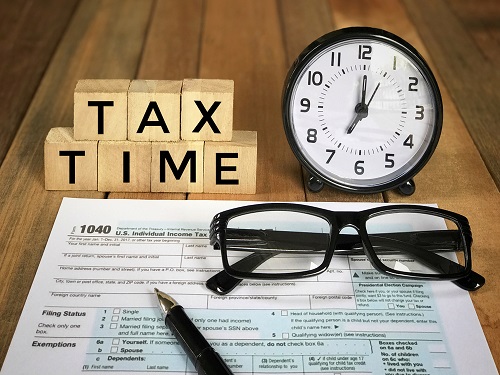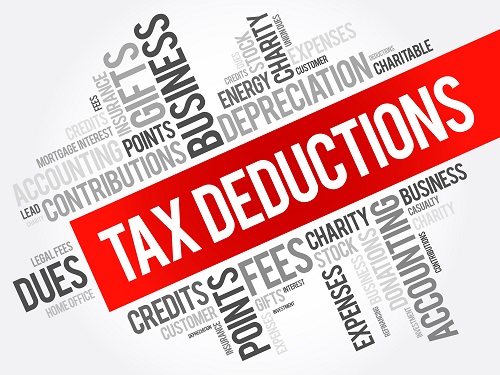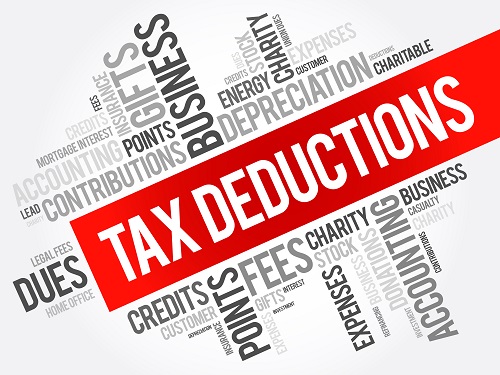Income Tax Deductions and Exemptions for Salaried Individuals
Income Tax Deduction Section List
The Income Tax Act of 1961 contains several clauses that allow you to deduct your taxable amount. When electronically filing income tax returns, deductions must be noted on the relevant ITR form.
Section 80C:
Only individuals and HUF are eligible for deductions under this section. This clause exempts up to Rs. 1.5 lakh in expenses and certain investments, such as NSC, from taxes.
Section 80CCC:
Payments paid to LIC or any other authorised insurance provider under a valid pension plan are subject to deductions under this section. The pension plan must be taken out of the individual's taxable income and be up to Rs. 1.5 lakh.
Section 80CCD:
Both the employer and the taxpayer may deduct contributions to the New Pension Scheme under this provision. The contribution and the deduction are equal, and they don't exceed 10% of his pay. A total of Rs. 1.5 lakh can be deducted under Sections 80C, 80CCC, and 80CCD. Nevertheless, the Rs. 1.5 lakh cap does not include payments made to the Notified Pension Scheme under Section 80CCD.
Section 80D
Income tax deductions for paid health insurance premiums are covered under Section 80D. Individuals can get insurance coverage that will cover them, their spouse, dependent children, and their parents, whether or not they are dependents, for up to Rs. 15,000.
If the insured is a senior person, there is an extra Rs. 5,000 deductible. Any member may be insured under HUF, and there would be a general deduction of up to Rs. 15,000 plus an additional Rs. 5,000 deductions. Regardless of whether the assessee is an individual or a HUF, a total deduction of Rs. 2.0 lakh may be claimed.
Section 80DDB:
This section covers medical expenses incurred by the assessee, a family member, or any member of a HUF to treat an illness or ailment as defined by the rules (11DD).
Section 80E:
Interest paid on student loans for education in India is eligible for deductions under this clause.
Section 80EE:
This provision addresses first-time homeowner tax savings. People who buy their first property for less than Rs. 40 lakh and take out loans for less than Rs. 25 lakh are covered by Section 80EE.
Section 80RRB:
This section allows for the claim of deductions for income received from royalties or patents. For patents registered under the Patents Act of 1970, income tax savings of up to Rs. 3.0 lakh are possible.
The tax savings that apply to interest generated in savings bank accounts, post offices, or cooperative organisations are covered under Section 80TTA. A deduction of up to Rs. 10,000 can be claimed by individuals and HUFs on interest income.
Section 80U:
When a disabled person presents their disability certificate, they are eligible for a flat income tax reduction. According to the degree of the handicap, up to Rs. 1.0 lakh may be exempt from taxes.
Section 24
Interest paid on tax-exempt housing loans is covered in this section. In addition to the deductions allowed by Sections 80C, 80CCF, and 80D, an annual deduction of up to Rs. 2.0 lakh may be claimed. Only self-occupied properties are covered by this. Tax exemptions are available for properties that are rented out, 30% of rent received, and paid municipal taxes.
Benefits of Filing Income Tax Online
If you earn more than the basic exemption limit, you will have to file your income tax returns. And an online IT calculator can help you understand how much income tax you should pay. Also, those who have a taxable income of less than the exemption limit can file a nil return. These are the benefits of filing your income tax returns online:
- The entire e-filing process is quick and can be carried out at your convenience.
- The transfer of refunds online takes place faster during e-filing.
- The confirmation of and the updates on your ITR status are prompt.
- The online tax returns filing process is secure since none of your private or financial details will be stored.
- The ITR statement can be presented as proof of income and proof of address when applying for a visa, loan, or life insurance plan.
- Since e-filing your returns is quick and easy, you can carry out the process yourself and avoid late fees and penalties.
Eligibility Criteria to File Income Tax Returns
The Income Tax Act states that only people or companies who are in specific income brackets are required to pay income tax. The following lists the organisations or companies that must file their ITRs in India:
Everyone who earns more than Rs 2.5 lakh in a fiscal year, up to the age of 59. The maximum rises to Rs. 3 lakh for senior persons (60–79 years old) and Rs. 5 lakh for super senior citizens (80 years and above). Remember to enter your gross income before using Section 10 exemptions and Sections 80C–80U deductions when using an income tax calculator. This guarantees precise tax computations based on your entire income.
You can check out the highlights of the Union Budget 2025 to stay updated on key policy changes and financial allocations.

 FOR EXISTING POLICY
FOR EXISTING POLICY  1860 266 9966
1860 266 9966
 FOR NEW POLICY
FOR NEW POLICY 

















